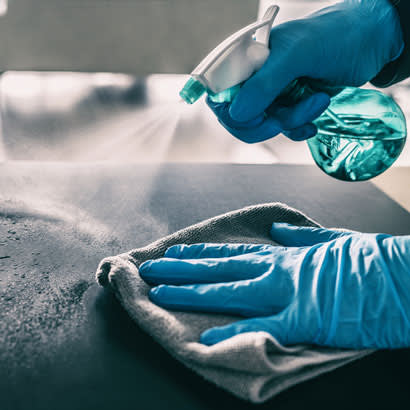
As the monkeypox outbreak continues in the United States and youth head back to school across the country, the Centers for Disease Control and Prevention (CDC) has provided updated guidance for schools, early care and education programs, and other settings serving children or adolescents. As one of the largest providers of out-of-school time programs for youth and families, park and recreation professionals can look to the CDC’s guidance to help navigate their response to the monkeypox outbreak.
At this time, CDC suggests the risk of monkeypox to children and adolescents in the United States remains low. For this reason, park and recreation professionals serving children or adolescents should continue normal operations without having to enforce major programmatic changes due to the monkeypox outbreak. Regardless, park and recreation professionals should continue to follow CDC guidance to reduce the transmission of infectious diseases in their settings. This includes routine cleaning and disinfection procedures, encouraging staff and volunteers to remain home when sick, and providing personal protective equipment (PPE) for staff caring for children with infectious diseases. CDC also recommends identifying private, isolated spaces to separate ill children in the event a case arises.
Park and recreation professionals are encouraged to reference CDC’s newly developed Frequently Asked Questions resource for detailed information on managing the monkeypox outbreak. NRPA has also provided answers to some of the main questions park and recreation professionals may be asking below.
What Should Park and Recreation Professionals Do in the Event of a Positive Case?
In the event a monkeypox case does arise, park and recreation professionals should follow CDC guidance on managing monkeypox cases and exposures. CDC guidance suggests staff should first clean and disinfect any items or services the infected individual touched, including toys, towels, surfaces, sports equipment, etc. CDC provides detailed guidance on effective ways to disinfect the home and other non-healthcare settings exposed to the virus.
According to CDC, once all exposed areas and items are identified, cleaned, and disinfected, staff, volunteers, and children are cleared to reoccupy that space. Individuals with monkeypox should follow CDC guidance on isolation practices, including staying at home and away from others. Infected individuals should only return to this space when all scabs have fallen off and a fresh, healthy layer of skin has formed. CDC suggests this typically occurs 2-4 weeks after the onset of symptoms. At this time, CDC does not anticipate full center-wide closures in the event of a positive case. However, park and recreation professionals are encouraged to work closely with their local health departments to support contact tracing initiatives to limit the further spread of the virus.
How To Manage Exposures
In most situations, CDC reports that children, staff, and volunteers who have been exposed to monkeypox can continue to attend sessions and services but should be monitored for symptoms for 21 days after exposure. In the event a child develops symptoms, CDC has provided additional guidance that staff should follow to manage exposures, including isolating that child from others, encouraging mask use if age appropriate, and wearing PPE when caring for an infected child. CDC also suggests those with new, unexplained rashes should seek a medical evaluation and consider a swab test to detect the virus.
Vaccination
Currently, CDC recommends vaccination for those at a higher risk of monkeypox infection or those exposed to monkeypox. At this time, there is not a need for widespread monkeypox vaccination among children or staff at K-12 schools or early childhood settings.
Communication
CDC also recommends using fact-based communication to inform and educate parents, staff, volunteers, and age-appropriate students about the virus. By initiating conversations with facts, park and recreation professionals can openly communicate with community members in non-stigmatizing ways. CDC has also compiled monkeypox resources specifically for teens and young adults, and park and recreation professionals are encouraged to share these as appropriate.
NRPA encourages park and recreation professionals to connect with their local and state health departments, school districts and others to stay up to date on the monkeypox outbreak in your community.
NRPA regularly monitors emerging guidance from CDC and will keep park and recreation professionals abreast of any changes or new, relevant guidance.
If you have any questions or would like to share how your agency is responding, please reach out to NRPA's Health Team at health@nrpa.org.


